At a breakout session at the State of the Ports event hosted by the World Trade Center Institute (WTCI), Ryan Polakoff, President of Nexterus, moderated a panel represented by a distributor, manufacturer, and shipper that discussed the pandemic and lessons learned. The World Trade Center Institute empowers globally-minded business leaders from the Mid-Atlantic region with ideas and connections to drive growth and global good.
Participants on the panel included:
- Elda Devarie, President, EMD Sales – 153K sq ft warehouse in Baltimore, employs 150 people, target customers – supermarket chains & restaurants, 25 truck fleet.
- Perry Menzies, Vice President of Warehouse Operations, Terminal Corporation – 5 warehouses of 1.2M sq. ft.; 3PL- container dray, warehousing, & regional delivery services.
- Ryan Polakoff, President, Nexterus – 3PL
- Salim Benjelloun, Vice President of Operations, Pompeian Olive Oil – manufacturer
The questions the panel discussed and some answers are below, with more detailed answers on the Nexterus blog
Supply chain volatility is still rampant and real. What has your company learned?
- Elda – We strive for flexibility in our day-to-day operations. We focus on being creative and keeping team members safe to continue operations. To continue shipping products during disruptions, we tried to stay three steps ahead of the disruption by changing ports or finding new suppliers. – we changed ports and found new suppliers.
- Salim – We are focusing on flexibility and our people. We want our people to know we care about them, so we meet individually with each employee, from the janitor to the C-Suite. The same goes for our service providers and partners to strengthen relationships. We also implement redundancy backup plans, with manufacturing facilities on the East and West coasts and Spain.
- Perry – We moved supply chain management from the back room to the board room. Customers wanted to get more involved to understand what technology we use, how to integrate with this technology to share data, and how to partner on the costs of new technology. Our business is family owned. During the pandemic, employees worked non-stop on weekends and holidays, and the owners came to work alongside them.
Categorized as an essential business during the pandemic, what responsibilities did you face, and what were the challenges?
- Elda – One challenge during the pandemic was the lack of availability of products. We want to ensure that we serve the community and that food is available in the stores. There will be no food deserts – we will have products available for all sizes of customers, from large customers to small Mom and Pop shops. When bad things happen in the community, like the pandemic, we all must hold hands and say we are here to make products available so you can continue to operate your business.
- Salim – We ensure store shelves are full by sourcing olive oil globally. We connect with the farmers and ensure they deliver a quality product for the entire year at sustainable costs. Our industry is weather-dependent, so we make sure we find different sources of products. But we don’t just buy oil; we buy only quality oil. Our manufacturing staff works long hours to keep production and fulfillment going so we can provide our customers with quality oil.
- Perry – We partnered with our customers on several initiatives, including when a forest product customer wanted to run their products through our warehouse but didn’t have any space. We looked at the 80/20 rule and asked if this was the right service agreement for them or should they use a public warehouse. We changed their contract to a fixed contractual storage arrangement where they committed to a long-term space agreement and assured them we would have space for their cargo. We also looked at our assets to see if we utilized them as best as possible. We split the receiving and shipping functions and added a different shift to improve these operations. So, when the crew was pulling cargo from the pier, they would use the evening shift to unload cargo, and then they would have empty chassis for the truckers to use the next day.
In today's supply chain marketplace, with increasing fuel and raw materials costs, is there any light at the end of the tunnel?
- Salim – Get used to the tunnel – actually, better efficiency is the answer. The pandemic forced us to be more sustainable and more efficient. We investigated making our bottles more sustainable and shaped differently to store more products. Even if a company has limited resources, it can be profitable by having employees do their best in every single way. Educate people about the health of the product. Consumers will pay more for products that are healthy and sustainable. But you want to make sure your product quality stays consistently high.
- Perry – Our costs went up – fuel, labor, space. We had a challenging conversation with customers early on, explaining that we needed to pay people more, invest in retaining and recruitment, and pay higher prices for industrial space. We renegotiated our leases on space to long-term contracts to capitalize on lower space costs. We invested in technology to reduce redundancies and help with cost savings.
- Elba – As people are our biggest asset, we engaged with employees and made sure they were paid fair wages so they would stay with the company. The freight cost is decreasing, but not over the road transport. Containers from Southeast Asia went from $4K to $19K. Bottlenecks within the ports cost them demurrage. We didn’t receive containers at interval times; instead, they all arrived simultaneously. The unexpected made prices increase, and this wasn’t easy to manage. But we learned from it and had to pivot and change.
People make a difference in a company. What are you doing to retain and attract talent?
- Perry – As an essential business, we could keep our employees working. But we doubled down on our company culture and began recognizing and rewarding employees. We expanded our employee appreciation programs and invested in leadership training. On the warehouse side, our weekly meetings changed to daily meetings to improve communication and collect feedback. We made promotional videos for our website to help with recruiting and posted more on social media.
- Elba – When our employees referred someone, they were rewarded financially. We also recognized longevity in the company. As employees showed up to run production and work in the local supermarkets, they received a bonus as the face of the company.
- Salim – We listened to individual feedback, took employee surveys, made our CEO more accessible, and formally recognized and financially compensated employees. We help events in our community to show employees we care about them. We held nutritional and workout events that focused on health. And we give free health coverage for employees and their family members.
How have geopolitical issues impacted your business?
- Elda – Our sourcing has been affected by geopolitical issues. Hurricanes in the area where our products came from destroyed crops and affected the ports, making products harder to attain. We saw many suppliers suffer, so we had to be flexible and source from other parts of the world. We focused on good relationships with manufacturers in the country of origin. We got to know them on a personal level. Once you deal with the human aspect of the relationship, then you can talk about business.
- Salim – The war in Ukraine affected the price of olive oil. The availability of oil in that region was limited, so prices skyrocketed. We don’t buy our transportation on the spot market. Instead, we have a hybrid approach using road transport and rail. This helps to keep costs lower. The Port of Long Beach was so congested that shipments were delayed by three to four months. So instead, we used the Port of Baltimore. We also relocated manufacturing facilities to help reduce costs. We moved our supply chain network around where costs made the most sense so customers didn’t have to pay.
- Perry – Geopolitical issues affected our shippers. For example, one of our clients, a large cabinet maker, was buying all materials from China. Still, because of the trade war with China, they had to find new international suppliers with poor-quality goods. We need to capture more data on where cargo originates and what lane products are shipping on.
Let’s look into the crystal ball and see what’s up for 2023.
- Elda – We will continue seeing what we are seeing this past year. Local transport is challenging because of the availability of truck drivers and rising freight costs. We see progress with costs going down on ocean shipments. We have to be creative in finding new solutions.
- Salim – Supply chain challenges will continue, and these challenges are something we must get used to having around – we must be ready for the unknown. We must also understand that challenges will make us stronger and better prepared. We also need to understand our customers. Today health is more important for the younger generation, so we need to get the message out about the health of our product.
- Perry – We put much investment in technology for visibility and risk management. We gained momentum during the pandemic when we invested in technology. We intend to be a solution for our customers’ supply chains.
Yesterday’s inventories were categorized as “just in time.” Now we classify inventory as “need to have it,” but we have found that many companies have too much inventory. How do we tackle that?
- Elda – We are concerned with product expiration dates, so we must look at bottlenecks in the supply chain and how to manage excess inventory while keeping track of expiration dates. We don’t have high inventory levels because we managed to work early on with manufacturing and moved to other markets where supplies were low.
- Salim – Operational efficiency is critical to managing inventory. Because of seasonality, we had to keep adjusting. We use our space the best we can. We must also deal with shelf life and continuously balance inventories to ensure our operations are in sync. We are always moving the target.
How did you accommodate disruption? What was your greatest success when you were hit with the “oh no, what do we do now” moment?
- Elda – We can look back over the past two years and see that we created best practices that we shared with others in our industry. We see peers’ successes and failures, compare notes and determine the best way to handle disruptions.
- Salim – We had serious spikes in demand. We saw that our competition couldn’t keep up, but we maintained supply daily. It took the entire organization to do this.
- Perry – People’s lives and careers were affected by the pandemic. Many of our frontline managers stepped into roles they didn’t know they could do to help out.



